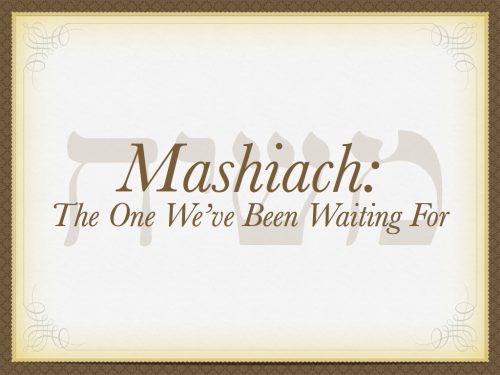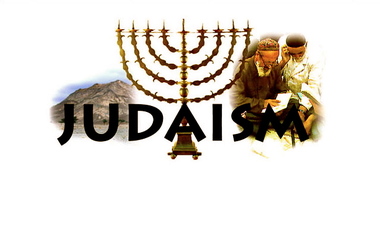About 60 countries support women’s access to abortion today. Some consider a gestational limit or the maturity of the fetus. Some consider it legal depending on reasons, while some are entirely against it.
Category: Judaism Principles and Beliefs
Judaism: The Thirteen Principles Of Faith
Rabbi Moshe ben Maimon (Maimonides) also known as “The Rambam,” a Jewish scholar, decoded the 613 commandments or the “Taryag mitzvot” into 13 fundamental principles of Judaism faith. The Thirteen Principles of Faith or the “Shloshah Asar Ikkarim” is the summary of the 613 commandments filtered to understand the core meaning of them all.
It is a Jewish custom to recite these principles of faith every day after their morning prayer or what they call “Shacharit.” The 13 principles of faith are recited every day so that the Jews will never forget them. This way, they can always observe their faith and help them be grounded in their message.

1. Faith that God alone is the creator.
Maimonides stated that “There is a Being, perfect in every possible way, who is the ultimate cause of all existence. All existence depends on God and is derived from God.”
2. Faith that God is unique and one.
Maimonides stated that “If one even allows himself to think that there is another deity other than God, then he violates the commandment, ‘You shall have no other gods before me.’”
3. Faith that God is incorporeal and incomparable.
Maimonides explained that God has no physical body and cannot be compared to any other creations.
4. Faith that God is first and last.
Maimonides explains that God is eternal and boundless. Nothing else that was created comes equally to His eternal unity.
5. Faith that we should pray to God alone.
Maimonides believed that we should pray to God alone. Jewish faith doesn’t believe in mediators such as priests, saints, prophets or angels. God should be the only one we praise and treat as such.
6. Faith that the words of the prophets are true.
The faith of Judaism is rooted in the words of the Hebrew prophets, and they have complete faith that their words are the truth and should be preserved.
7. Faith that Moses is the chief prophet.
The Jewish faith believes that Moses is the “father of all prophets.” He, among anyone else, was the closest to ever communicate with God. Other prophets needed an intermediary but Moses did not. It is indicated in the Torah that God said, “Mouth to mouth, I will speak to him.”

8. Faith in the divinity of the Torah.
The Jewish faith believes that the Torah is the same Torah that was given to Moses in Mount Sinai and that it has been preserved and passed down to guide us and the future generations to come.
9. Faith that the Torah cannot be changed.
The Torah cannot be changed in any way. No words shall be added or changed as it is obsolete.
10. Faith that God knows all things.
The Jewish faith believes that God is all-knowing. He sees and hears all, even our thoughts.
11. Faith that God will reward the righteous and punish the trespassers.
The Jewish faith believes that God will reward those who follow his commandment and punish those who defy Him.
12. Faith that the Messiah will come.
The Jewish faith believes that the “Maschiach” or the Messiah will come and bring Israel to greatness once more.

13. Faith in the resurrection of the dead.
Lastly, Maimonides explains that the Jewish faith believes the dead will rise again when God wills.
Maimonides believed in the Taryag mitzvoth of Torah, and he made the fundamental principles it is based upon. These principles are sacred. They are observed up to this very day and will be up until the end of time as it was stated.
What Judaism Thinks Of Euthanasia

Judaism is monotheistic Abrahamic religion that believes in one God and the covenant between Him and men. Their faith is guided by the commandments that had been given to Moses on Mount Sinai. According to the Talmud or the study of Jewish beliefs and traditions, there are 613 mitzvot or the Jewish commandments.
Their laws and teachings are written in the Torah, or the first five books of the Jewish sacred book, Tanakh. One of the 13 principles of Judaism is that the Torah is divine. They have faith in its sanctity and forbids any form of alteration in it.
Just like all other religions, Judaism is for the preservation of life and goodness of men. Some of the laws could be in conflict with the modern world where goodness seemed to have focused on the perception and happiness of men. “Contrary to popular belief, Judaism is pro-life,” Mitchell Rocklin, Ph.D. and co-author said.
What does Judaism think of euthanasia which appears to be acceptable in some places nowadays?
Euthanasia is ending a person’s pain and suffering by ending that person’s life. It is also known as “mercy killing.” It is used when there is no chance of survival and death is certain. People who approve of euthanasia believe that a person who already has imminent death can and should be spared from the agony.
“Assisted voluntary euthanasia—when a patient intentionally brings about their own death with the help of a physician—is a complex, emotionally charged issue. Many people are against its legalization because of their religious, cultural or ethical beliefs,”
Jenni Ogden Ph.D. wrote.

When is euthanasia used?
- Euthanasia is used for people who are suffering from terminal illness such as cancer. They use the term goses for a terminally ill person who has only 72 hours to live. When a patient reaches the terminal stage of his disease, he could experience an intolerable amount of pain.
The emotional pain of seeing the patient suffer is much more unbearable to the family. Euthanasia aims to the end the pain and suffering of both parties.
- There are cases where the patient is the one who wishes to do euthanasia because of fear of feeling the pain and how it could get worse eventually.
Judaism, like most religions, considers taking one’s own life suicide, and to ask others to end your life is like asking them to commit murder. Likewise, allowing a person to commit suicide or euthanasia is like permitting him to commit a sin.
“The message of Judaism is that one must struggle until the last breath of life. Until the last moment, one has to live and rejoice and give thanks to the Creator,” Rachamim Melamed-Cohen, Ph.D. points out.
- Passive euthanasia is any act of prohibiting longevity of life. It is a Jewish belief that all life is sacred and that we should do everything to preserve life. If there’s a hope to make a life longer, it should be given a chance.
This applies to doctors and those who have the knowledge to cure diseases and lengthen lives. Judaism believes that people are allowed to this certain kind of knowledge to be able to help in prolonging life, and denying anyone of it is also like ending his life.
Judaism respects all forms of life until the last breath, and anything that causes death is treated as murder. Their faith is in the preservation of life, and pain is a part of it and not to be treated as a reason to end it. The pain can be removed as long as one is alive, and even if it does not disappear, performing euthanasia should be not an option as it is considered murder.